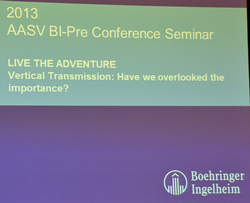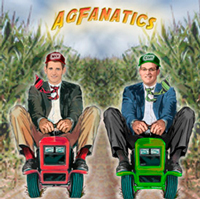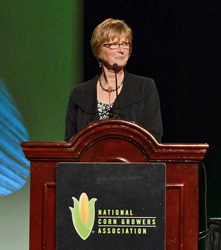 Analogies are a great way to illustrate your point, and Dr. Dale Polson, technical resources specialist with Boehringer Ingelheim (BIVI), really used them in talking about vertical transmission of PRRS at the BIVI Swine Health Seminar for swine vets in San Diego. Polson compared PRRS waterfalls, Where’s Waldo and even the national debt, among others, to talk about how transmission of the disease is defined too narrowly.
Analogies are a great way to illustrate your point, and Dr. Dale Polson, technical resources specialist with Boehringer Ingelheim (BIVI), really used them in talking about vertical transmission of PRRS at the BIVI Swine Health Seminar for swine vets in San Diego. Polson compared PRRS waterfalls, Where’s Waldo and even the national debt, among others, to talk about how transmission of the disease is defined too narrowly.
He said if you look at transmission of PRRS from the sow to the piglet as a waterfall, you also have to consider where that “water” travels. “That water is going to other sites, which then, themselves become waterfalls, and that’s going to other downstream sites, which then, themselves are waterfalls as well.” And Polson added you need to manage an entire area for PRRS, because that just like a waterfall crashing down on the rocks below, PRRS spreads horizontally as well, which creates even more waterfalls.
And when it comes to comparison to the national debt, Polson said while the numbers $16.5 trillion for the national debt compared to $16.5 billion that PRRS has cost swine producers, the cost-share per farm is larger than each home’s share of the national debt.
Finally, just like finding the cartoon character Waldo, when it first starts out, PRRS seems to be everywhere. But as “Waldo” … or PRRS in this case … gets harder to find, it is just as impactful. “Especially if people pull the trigger on sending pigs to a negative area,” Polson explained.
Polson said managing vertical transmission of PRRS is non-negotiable and that there needs to be better, more active collaboration between swine producers and observation of a modified Golden Rule: “Transmit unto others as you would have others transmit unto you.”
Listen to Cindy’s interview with Dr. Polson here: Interview with Dr. Dale Polson, BIVI
BIVI Swine Health Seminar Photo Album













